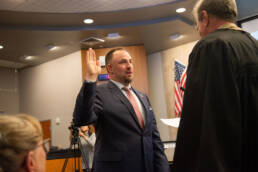FTC Proposes New Protections to Combat AI Impersonation
Agency finalizes rule banning impersonation fraud and seeks to extend protections
The Federal Trade Commission (FTC) is making aggressive moves to crack down on Artificial Intelligence (AI)-generated impersonation fraud.
The agency is taking action in light of surging complaints around impersonation fraud, as well as public outcry about the harms caused to consumers and to impersonated individuals. Emerging technology – including AI-generated deepfakes – threatens to turbocharge this scourge, and the FTC is commit- ted to using all of its tools to detect, deter, and halt imperson- ation fraud.
“With voice cloning and other AI-driven scams on the rise, protecting Americans from impersonator fraud is more crit- ical than ever,” said FTC Chair Lina M. Khan. “Our proposed expansions to the final impersonation rule would do just that, strengthening the FTC’s toolkit to address AI-enabled scams impersonating individuals.”
In addition, the FTC has finalized the Government and Busi- ness Impersonation Rule, which gives the agency stronger tools to combat scammers who impersonate businesses or government agencies, enabling the FTC to directly file federal court cases aimed at forcing scammers to return the money they made from scams.
Government and business impersonation scams have cost con- sumers billions of dollars in recent years, and both categories saw significant increases in reports to the FTC in 2023. The rule authorizes the agency to fight these scams more effectively. For example, the rule would enable the FTC to directly seek monetary relief in federal court from scammers that:
• Use government seals or business logos when communicat- ing with consumers by mail or online.
• Spoof government and business emails and web addresses, including spoofing “.gov” email addresses or using lookalike email addresses or websites that rely on misspellings of a company’s name.
• Falsely imply government or business affiliation by using terms that are known to be affiliated with a government agen- cy or business (e.g., stating “I’m calling from the Clerk’s Office” to falsely imply affiliation with a court of law).
The final rule on government and business impersonation will become effective 30 days from the date it is published in the Federal Register. Learn more at consumer.ftc.gov, or report fraud, and scams, at ReportFraud.ftc.gov.












